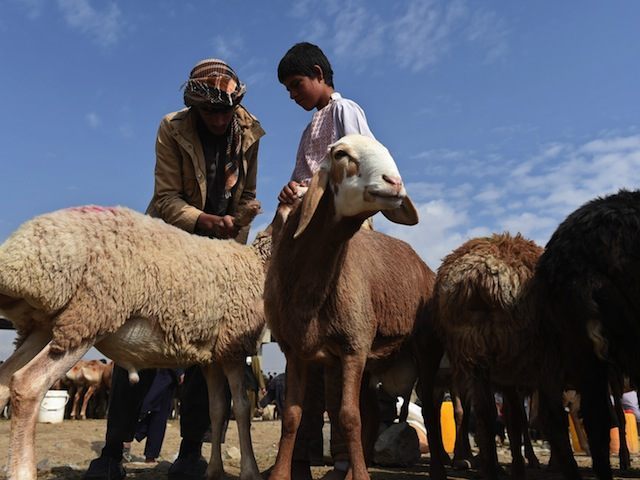WASHINGTON, D.C. — Sexual abuse of young boys by powerful men in Afghanistan, a common practice that was punishable by death under Taliban rule, was “resurrected” after the terrorist group’s regime was overthrown by the U.S.-led invasion in 2001, reports a federal watchdog agency.
Members of the Afghan National Defense and Security Forces (ANDSF) have been accused of engaging in the centuries-old custom known as bacha bazi (literally translates to “playing with boys”).
Bacha bazi “encompasses the ancient Afghan custom of powerful men sexually abusing young boys,” notes the office of the Special Inspector for Afghanistan Reconstruction (SIGAR), in its most recent quarterly report to Congress. “The Taliban made the practice punishable by death, but bacha bazi has been resurrected since the fall of the Taliban.”
“Under the practice, young boys, also known as ‘chai (tea) boys’ are sold to wealthy and powerful men for entertainment and illicit sex,” it continues. “As women are not allowed to dance in public, boys are made to dance and perform feminine gestures and acts. Boys have been raped, kidnapped, trafficked, and even sold by their parents for family prestige and money.”
SIGAR goes on to point out that reports claiming that the practice is somehow “evolving into a nonviolent and consensual practice do not recognize that adolescent boys have not reached the age of consent.”
The practice began making headlines when Sgt. 1st Class Charles Martland, a decorated Green Beret, revealed that he was being kicked out of the Army for confronting a U.S.-trained and equipped Afghan local police commander accused of repeatedly raping a 12-year-old boy.
That revelation led to The New York Times declaring that U.S. forces had been ordered to ignore the rape of young boys by members of the Afghan security forces, a report that has been denied by the Pentagon.
A spokesman for the U.S. mission in Afghanistan told the Times that accusations of child sexual abuse by ANDSF members is a matter handled by Afghan domestic law enforcement.
The office of the inspector general at the Department of Defense (DOD) has launched an investigation into the U.S. military’s response to allegations of child sexual abuse by Afghan forces.
Although Afghan law does address sexual assault, there is no specific provision that deals with bacha bazi, notes John Sopko, the special inspector general, in the 256-page report to Congress.
“The Afghanistan Independent Human Rights Commission (AIHRC) has recommended the government criminalize the practice and modify the penal code based on provisions in the Universal Declaration of Human Rights and other human-rights conventions,” he adds.
In condemning the reported sexual abuse of boys, Sen. Patrick Leahy (D-VT) argued that the act violates a provision of U.S. law named after him — the Leahy Amendment.
The amendment prohibits the use of U.S. taxpayer dollars to fund any training, equipment, or other assistance for ANDSF members if the U.S. Secretary of Defense has credible information that they have committed a “gross violation of human rights.”
Sopko learned from the component of the U.S.-led coalition charged with training and developing the Afghan security forces that all individuals slated to attend U.S.-funded training were subjected to routine Leahy amendment vetting.
However, the multinational training component, known as the Combined Security Transition Command – Afghanistan (CSTC-A) failed to state if any Afghan security force members had been rejected due to Leahy violations.
“CSTC-A stated it would enforce any decisions made by the Secretary of Defense to deny equipment or funds to ANDSF units found in violation of the Leahy Amendment,” reports SIGAR.
In response to the Times report that U.S. forces had been instructed to turn a blind eye to the rape of young boys by ANDSF members, Afghan President Ashraf Ghani called for action to discharge Afghan security troops who engage in the practice and to charge them in court.
Although he declared that sexual abuse of boys will not be tolerated, he conceded that Afghanistan “needs time” to deal with the “larger cultural dynamic” linked to bacha bazi given that the custom is centuries old.
Citing a statement from Gen. John Campbell, the top commander of U.S. and NATO troops in Afghanistan, the Pentagon denied that U.S. troops had been told to ignore the rape of children by their counterparts.
While testifying before the Senate Armed Services Committee on Oct. 6, Gen. Campbell said the incidents cited in the Times article occurred between 2010 and 2012.
The general also claimed that U.S. policy in effect since at least 2011 requires U.S. service members to report all suspected human rights violations to their superiors, who will then report them to Afghan authorities.
Gen. Campbell issued a statement on Sept. 22 ordering U.S. and non-U.S. personnel assigned to the American mission in Afghanistan to immediately report suspicions of sexual abuse to the chain of command.

COMMENTS
Please let us know if you're having issues with commenting.